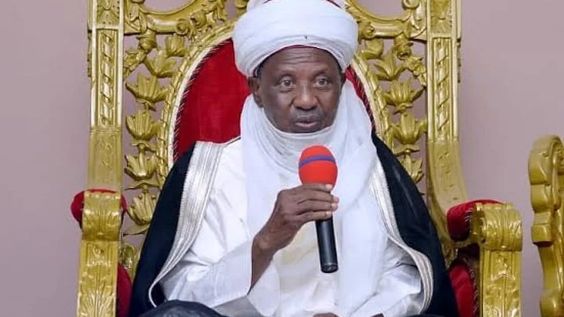Nigeria
Emir of Gwandu issues a warning against military intervention in the Niger Republic

The Economic Commission of West African State (ECOWAS), headed by President Bola Tinubu, has been warned by the Emir of Gwandu, retired Maj.-Gen. Muhammadu Ilyasu-Bashar, against using military action to restore democracy in the Niger Republic.
The call was made by Ilyasu-Bashar, who is also the Chairman of the Kebbi Council of Chiefs, on Sunday during the weekly prayer meeting in Birnin Kebbi.
“If Niger Republic is attacked, the consequences of the attack will not only affect that county alone but also Northern Nigeria,” he stated. “Considering the long ties and relationship existing between people of Niger Republic and Northern Nigeria.”
The emir then prayed for a peaceful end to the political impasse so that the two sister countries may continue to have good relations.
He also counselled individuals to consistently uphold their religious duties in order to earn Allah’s blessing and reward both now and in the hereafter.
According to Ghana’s army spokesman, anxieties over a potential military intervention in Niger will be present during the ECOWAS military chiefs’ meeting on Thursday and Friday in Accra, Ghana, according to the News Agency of Nigeria (NAN).
At an emergency summit, the heads of state of ECOWAS ordered the preparation of a military force to restore constitutional order against those responsible for the coup in Niger. However, they emphasised that efforts towards a peaceful resolution of the conflict should continue.
A week after the coup in Niger, the defence ministers and military chiefs of the ECOWAS convened and developed deployment plans after giving the putschists an ultimatum.
Nigeria, Senegal, Ivory Coast, Benin, and Guinea-Bissau, five of the fifteen ECOWAS members, expressed their willingness to send soldiers in the event of an intervention.
In the case of an intervention, Mali, Burkina Faso, and Guinea, which were also expelled from ECOWAS following coups, want to provide military support to the junta in Niger.
According to NAN, some of the most severe sanctions on Niger have been put in place since the coup by ECOWAS and the West African Monetary and Economic Union.
The bloc also froze Niger’s state assets in the regional central bank, its state assets in commercial banks, and all financial support from regional development banks. The EU also suspended all business dealings with Niger.
